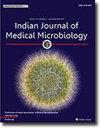CRISPR-Cas-assisted phage engineering for personalized antibacterial treatments
IF 1.4
4区 医学
Q4 IMMUNOLOGY
引用次数: 0
Abstract
Background
In the age of modern medicine, CRISPR-Cas system-aided phage engineering has emerged as a major game changer for developing personalized antibacterial treatments. Modifying genomic DNA at a specific location leads to the inactivation of target genes, the acquisition of novel genetic features, and the correction of lethal gene mutations. Phages can be modified to precisely detect and control bacteria because of the vast possibilities of CRISPR-Cas-based genetic engineering.
Objectives
The primary objective of this review is to explore the basic principles, mechanisms, limitations, and perspectives of CRISPR-Cas system-aided phage engineering in producing tailored antibacterial therapeutics. Furthermore, this study will address how editing phage genomes using CRISPR-Cas technology allows for precise bacteria targeting, broadening phage host range, and improving infection control tactics.
Content
The arrival of the CRISPR-Cas system has transformed the field of phage engineering and aided in the precise modification of phagе genomes to broaden the phage host range. This novel strategy uses the accuracy of the CRISPR-Cas system to design engineered bacteriophages, giving targeted options for infection control. These recent advancements have the potential to alter the era of modern medicine.
用于个性化抗菌治疗的 CRISPR-Cas 辅助噬菌体工程。
背景:在现代医学时代,CRISPR-Cas系统辅助噬菌体工程已经成为开发个性化抗菌治疗的主要游戏规则改变者。在特定位置修改基因组DNA会导致靶基因失活,获得新的遗传特征,并纠正致命的基因突变。由于基于crispr - cas的基因工程的巨大可能性,噬菌体可以被修改以精确地检测和控制细菌。目的:本综述的主要目的是探讨CRISPR-Cas系统辅助噬菌体工程在生产定制抗菌药物方面的基本原理、机制、局限性和前景。此外,本研究将探讨如何使用CRISPR-Cas技术编辑噬菌体基因组,以实现精确的细菌靶向,扩大噬菌体宿主范围,并改进感染控制策略。内容:CRISPR-Cas系统的到来改变了噬菌体工程领域,并有助于噬菌体基因组的精确修饰,以扩大噬菌体宿主的范围。这种新策略利用CRISPR-Cas系统的准确性来设计工程化噬菌体,为感染控制提供有针对性的选择。这些最近的进展有可能改变现代医学的时代。
本文章由计算机程序翻译,如有差异,请以英文原文为准。
求助全文
约1分钟内获得全文
求助全文
来源期刊

Indian Journal of Medical Microbiology
IMMUNOLOGY-
CiteScore
2.20
自引率
0.00%
发文量
154
审稿时长
73 days
期刊介绍:
Manuscripts of high standard in the form of original research, multicentric studies, meta analysis, are accepted. Current reports can be submitted as brief communications. Case reports must include review of current literature, clinical details, outcome and follow up. Letters to the editor must be a comment on or pertain to a manuscript already published in the IJMM or in relation to preliminary communication of a larger study.
Review articles, Special Articles or Guest Editorials are accepted on invitation.
 求助内容:
求助内容: 应助结果提醒方式:
应助结果提醒方式:


